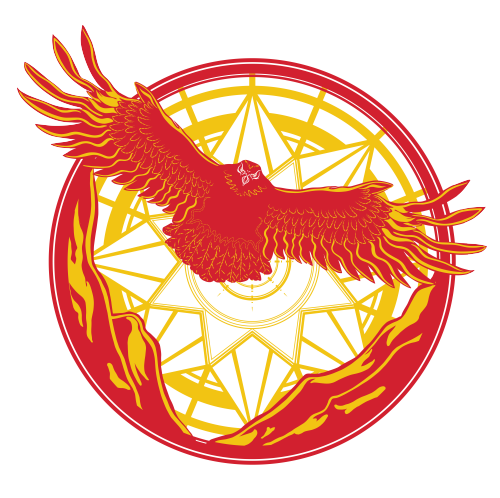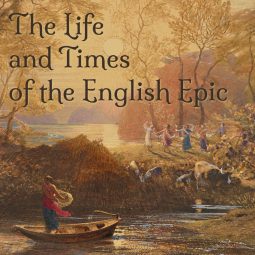INSTRUCTORS:
Looking to purchase an Anytime Audit? Our Lectures are moving! Click HERE to learn all about it.
This course explores historical contexts of, earliest inceptions of, and modern revisions to the English Epic genre. Divided along a loosely chronological structure, the course will touch upon core Classical and European texts before shifting to the national epic texts of the English Renaissance and surveying the afterlife of the English Epic. Spenser and Milton specifically constructed epic poems in imitation of Homer, Vergil, Ovid, and Dante, but, during the Renaissance, English national identity and English religious beliefs were deeply intertwined, and these early English Epics—like much of the literature of their time—reflect this congruency. After the Romantic era, the English Epic was adapted and occasionally contorted into a dizzying array of genres and forms, in texts that sometimes challenged the existing status quo of English nationalism and often incorporated epic elements into popular literature.
The first third of the course will highlight some foundational epic texts that established the traditional structure of the epic poem as a genre. While not itself an English Epic, Vergil’s Aeneid was first translated into English in 1490, becoming an essential and widely influential text in England during the late Middle Ages and the entire Renaissance. Medieval and early Renaissance epics from continental Europe, including the French chansons de geste and Dante’s Divine Comedy, intensified English desire for a national epic, as evinced in Spenser’s Faerie Queene and Milton’s Paradise Lost, both of which we will study in the second third of the course. Finally, the last third will explore the afterlife of the English Epic in a broader array of genres: Romantic poetry, spy thrillers, fantasy novels, and British cinema. The course will also touch briefly upon works that subvert and manipulate conventions of the traditional epic, such as the novels of Thomas Hardy and recent films by Edgar Wright and Simon Pegg.
Weekly Schedule
This course includes two live 90-minute lectures per week with one 60-minute discussion session as assigned.
Course Schedule
Unit 1: Foundations of the English Epic
Week 1 – Myth & Epic
- Origins and Definitions of the Epic
- Ovid and the Epic
Week 2 – Virgil and the National Epic
- Virgil’s Aeneid (and Dryden)
Week 3 – The Epic in Europe
- Chansons de geste and ‘Le Morte Arthur’
Week 4 – Dante and the Christian Epic
- Dante’s Inferno
Unit 2: The Birth of the English Epic
Week 5 – Theology and Monarchy I
- The Gospels and the Epic
- The Faerie Queene (Edmund Spenser)
Week 6 – Theology and Monarchy II
- The Faerie Queene
- The Epic in the English Renaissance
Week 7 – Milton and Tradition
- Paradise Lost
Week 8 – Milton’s Legacy
- Restoration, Theology, and the Epic
Unit 3: New Directions for the English Epic
Week 9 – The Epic, the Romantics, and the Industrial Revolution
- The Epic and the Romantic Imagination
- Jude the Obscure
Week 10 – Epic Heroes and Action Heroes
- Filming the Epic Hero
- Bond and Beowulf
Week 11 – The Epic and the Inklings
- Critical Responses to the Epic
- Perelandra
Week 12 – New Theologies of the English Epic
- The Subtle Knife
- Modern and Postmodern Epic
Required Texts
Note: Students are not required to acquire the precise editions listed below, but are requested, when reading works in translation, to seek out the listed translators. The Amazon links are provided for convenience only, and we encourage students to purchase texts wherever they wish. Access to more of Milton than merely Paradise Lost will be essential. Further required and suggested readings will be provided by the course instructors in the final syllabus.
- Vergil, The Aeneid, trans. Dryden.
- Ovid, The Metamorphoses, trans. Golding.
- Dante, Inferno, trans. Pinsky.
- Spenser, The Faerie Queene.
- Milton, Complete Poems.
- Hardy, Jude the Obscure.
- Fleming, Casino Royale.
- Lewis, Perelandra.
- Pullman, The Subtle Knife.
- Hot Fuzz
Course History
This course has been offered in the following semesters.
| Semester | Preceptor(s) |
|---|---|
| Fall 2021 | Dr. Faith Acker & Dr. Sara Brown |
| Spring 2019 | Dr. Faith Acker & Dr. Sara Brown |
Course Artwork
Digital image courtesy of the Getty’s Open Content Program.



